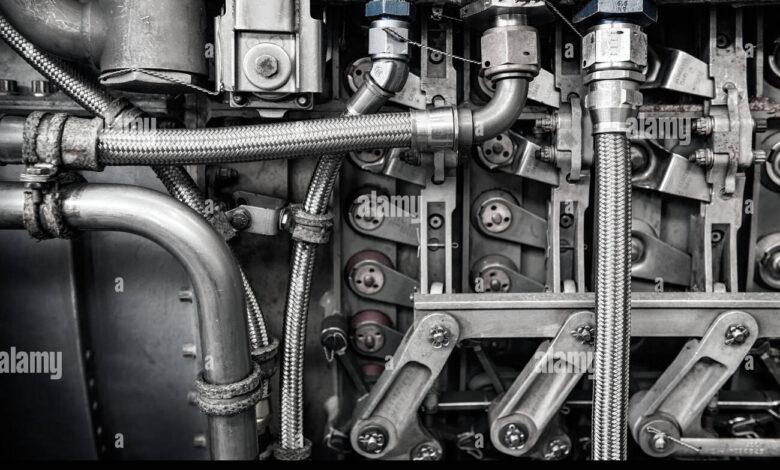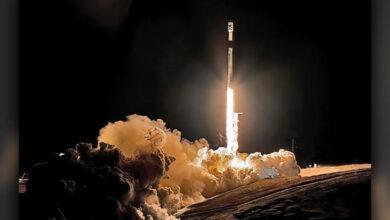Machinery: Powering Progress and Innovation

Introduction
https://isohitech.com/ Machinery, in its various forms, has been a cornerstone of human progress since the dawn of civilization. From the earliest tools to the complex systems powering modern industries, the evolution of machinery has shaped the way we live and work. In this article, we’ll explore the historical journey of machinery, its diverse types, and its profound impact on our daily lives.
Historical Evolution of Machinery
Early Forms of Machinery
https://mikeshoppingroom.com/ The journey of machinery begins with simple tools crafted by early humans to aid in daily tasks. These rudimentary devices evolved as societies advanced, leading to the ingenious creations of ancient civilizations.
Industrial Revolution and the Impact on Machinery Development
The turning point in machinery history came with the Industrial Revolution, where the mechanization of production processes revolutionized industries. Steam engines, textile machinery, and the advent of mass production marked a new era in human ingenuity.
Types of Machinery
Classification Based on Industry
Machinery spans various industries, each with its unique set of challenges and requirements. From manufacturing and agriculture to construction and beyond, different sectors rely on specialized machinery for optimal efficiency.
Categorization by Function and Complexity
Machinery can be categorized based on its functions and complexity, ranging from simple tools to highly sophisticated automated systems. Understanding these categories is crucial in appreciating the versatility of machinery.
Significance of Machinery in Modern Life
In our fast-paced world, machinery plays a pivotal role in enhancing productivity and efficiency across diverse fields. The seamless integration of machinery into our daily lives has contributed to remarkable technological advancements.
Enhancing Productivity and Efficiency
The automation of repetitive tasks by machinery not only increases output but also allows humans to focus on more complex and creative endeavors. This symbiotic relationship between man and machine has propelled progress to unprecedented heights.
Contribution to Technological Advancements
Machinery is at the heart of technological innovations. From precision manufacturing to the development of cutting-edge medical equipment, the influence of machinery extends far beyond the industrial sector.
Key Components of Machinery
Engines and Power Sources
The power behind machinery lies in its engines and power sources. Whether fueled by traditional sources like fossil fuels or harnessing renewable energy, understanding these components is essential for comprehending machinery functionality.
Control Systems and Automation
https://incomepultrusion.com/ Advancements in control systems have paved the way for automated machinery. The integration of artificial intelligence and smart technologies enables machinery to operate with precision and adaptability.
Challenges in Machinery Development
Environmental Concerns
The rapid development of machinery has raised environmental concerns, from resource depletion to pollution. Striking a balance between technological progress and ecological sustainability is a challenge that requires collective efforts.
Technological Obsolescence
As technology evolves, machinery faces the risk of obsolescence. Adapting to emerging trends and incorporating the latest innovations is crucial for staying relevant in the ever-changing landscape of machinery development.
Innovations in Machinery
Artificial Intelligence in Machinery
The infusion of artificial intelligence into machinery has unlocked new levels of efficiency and autonomy. Machines equipped with AI can analyze data, make decisions, and optimize processes, leading to unprecedented advancements in various industries.
Sustainable and Eco-Friendly Machinery
Addressing environmental concerns, the machinery industry is witnessing a shift towards sustainable and eco-friendly solutions. From energy-efficient systems to recyclable materials, manufacturers are embracing a greener approach.
Machinery Maintenance and Repair
Importance of Regular Maintenance
To ensure the longevity and optimal performance of machinery, regular maintenance is paramount. Proactive upkeep not only prevents breakdowns but also reduces the risk of accidents and costly repairs.
Common Issues and Troubleshooting
Understanding common issues in machinery operation allows for efficient troubleshooting. From mechanical failures to software glitches, a comprehensive approach to problem-solving ensures minimal downtime.
The Impact of Machinery on Employment
Job Displacement Concerns
The rise of automation and AI in machinery has sparked concerns about job displacement. While some traditional roles may evolve or diminish, new opportunities in machinery development, maintenance, and oversight are on the horizon.
Opportunities in the Machinery Industry
As the machinery industry evolves, so do job opportunities. Skilled professionals in areas like robotics, software development, and machine learning are in high demand, highlighting the dynamic nature of employment in this field.
Future Trends in Machinery
Integration of Robotics
The future of machinery lies in the seamless integration of robotics. Collaborative robots working alongside humans, known as cobots, are becoming more prevalent, enhancing efficiency and safety.
Advancements in Smart Machinery
Smart machinery, equipped with sensors and connected through the Internet of Things (IoT), is set to revolutionize industries. Real-time data analysis and predictive maintenance are among the many benefits that smart machinery brings to the table.
Machinery and Global Economy
Economic Implications of Machinery Production
The production and export of machinery have significant economic implications. Countries with a robust machinery industry often experience economic growth, job creation, and increased global competitiveness.
International Trade and Machinery
Machinery plays a crucial role in international trade, with countries specializing in the production of specific types of machinery. This interdependence fosters global economic cooperation and technological exchange.
Safety Measures in Operating Machinery
Importance of Training
Operating machinery requires proper training to ensure safety and efficiency. Training programs not only reduce the risk of accidents but also empower operators to make informed decisions in challenging situations.




